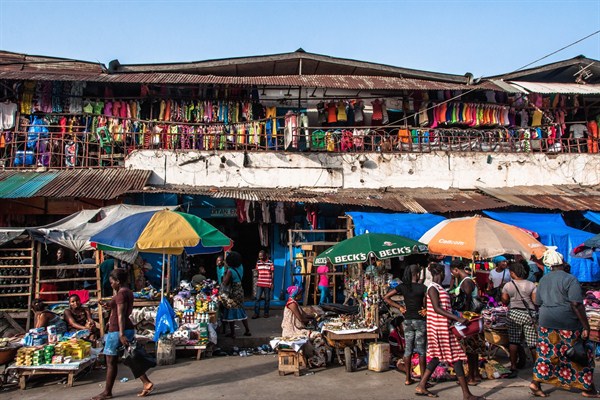While the lingering effects of the Ebola crisis have dominated coverage of Liberia for over a year, the country is quietly approaching a number of precipices. A convergence of political, religious and international factors on the horizon has the potential to destabilize Liberia, which has seen a tenuous peace since warlord-turned-President Charles Taylor resigned in August 2003, ending 14 years of civil war. A United Nations peacekeeping mission is poised to significantly draw down by June 2016; religious tensions have been stoked by a movement to declare Liberia a Christian state; and President Ellen Johnson Sirleaf reaches her term limit in 2017.
While presidential elections are perhaps the least imminent challenge, they are the hottest topic in Monrovia’s corridors of power. Buoyed by the recent example of opposition success in Nigeria and a relatively poor showing of Sirleaf’s ruling Unity Party (UP) in Senate elections last December, the opposition has its eyes on securing the executive branch in 2017. The ruling party secured only four of 15 available seats last year, while key independent allies of the president, such as her son, Robert Sirleaf, and President Pro Tempore Gbehzohngar Findley, were soundly defeated.*
Benoni Urey, a senior official in Taylor’s government believed to be Liberia’s richest citizen, was the first aspirant to declare his candidacy back in December 2013 after he was removed from a U.N. travel ban. Sirleaf’s deputy, U.S.-educated Vice President Joseph Boakai, has also declared his intention to run. Given his ties to the current administration and his advanced age—he would be nearly 80 by the end of his first term—Boakai’s candidacy is unlikely to be welcomed by young Liberians who derisively call him Sleepy Joe. Sen. Prince Johnson, a warlord who oversaw the deadly torture of former Liberian President Samuel Doe, is also poised to be a destabilizing factor after polling third in the 2011 contest. One prominent local paper has reported that he is angling for a spot on the ruling party’s ticket for 2017.

